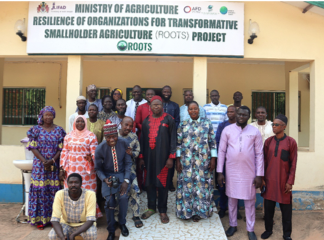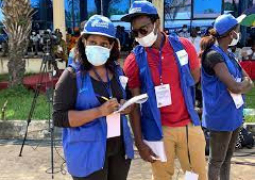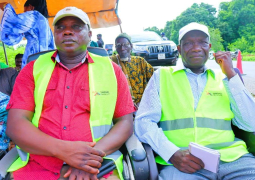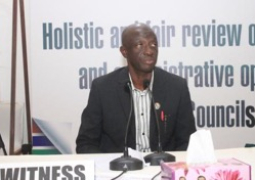
The project is out to reduce poverty at the household level, thus the ROOTS deemed it necessary to organize the meeting with DoA to review the field activities in the project intervention sites.
Speaking at the opening ceremony, Mamour Aliue Jagne, Project Director of ROOTS Project, expressed delight at the level of collaboration and support the project has been receiving from DoA.
Jagne says every collaboration has its ups and downs, but what is important is to have mechanisms in place where one can discuss what is good and what needs to be improved.
“Let us have an open and interactive discussion as the whole objective is to improve within the means possible, while looking forward to a very fruitful exchange in which we can come out with very strong and positive recommendations going forward,” he appealed.
Saikou E. Sanyang, Director General of the Department of Agriculture, said they were all working for the betterment of smallholder farmers, adding that one of the project's objectives is to improve smallholder farmers' food and nutrition requirements, especially women and the youth.
“The other objective is to have access to the markets, as we all know that one of the biggest challenges of our farmers is access to markets. So the project is here to see how best we can resolve this,” he said.
DG Sanyang further highlighted that the meeting was aimed at revisiting the framework and the MoUs that had been developed by the ROOTS Project in collaboration with DoA.
“The meeting also looked into the achievements we have registered, the challenges, and the way forward to overcome some of those challenges,” he said.
According to him, DoA has a key role in two of the components of the ROOTS Project, one of which is agricultural productivity and adaptation to climate change.
“It is our main function to collaborate with the project to see that the activity is being implemented on the right footing,” he emphasized. “The ROOTS Project is not only for ROOTS but for the whole of Gambia as we all have a stake. So we need to team up to see what we can implement within the framework.”
He challenged participants and staff of the ROOTS Project to be very positive and give constructive criticisms to add value to and improve on their activities.





